Enab Baladi’s Investigation Team
Enab Baladi – Ninar Khalifa/Reham al-Assaad
April was not like any other month for Umm Ayham. Since the death of her young don, spring comes to add insult to her injuries and bring back the painful memories of his death.
His birthday, in April, brings the memory of Ayham who passed away at a young age, along with the feelings of sadness, which have haunted his mother fade since his death. His memory triggers the need to prosecute those who caused his and thousands of other Syrians’ death who sought a better future for Syria.
Mariam al-Halaq (Umm Ayham) tells the story of her son, Ayham Ghazzoul, the young doctor who has been subject to torture in the regime’s prisons because of his peaceful activities. This has caused him to slip into a coma and took his life before turning 26 years old.
On November 5, 2012, Ayham was arrested at the campus of the Faculty of Dental Medicine at the University of Damascus in front of his students, where he was the supervisor of the third and fourth year students. The members of the National Union of Syrian Student took him to an administrative room at the Faculty of Medicine, which they have turned into a detention center equipped with torture devices. He was tortured and beaten on his stomach and head until he fainted, and then they poured boiling water on him.
Umm Ayham said that her son was transferred with one of his colleagues to the branch (215) affiliated to the Syrian Air Force Intelligence Directorate. He fell into a coma after being severely beaten, and couldn’t wake up. The warden refused to help him and said: “Let us know when he finally dies.” Three days later the doctor confirmed his death and the warden labeled him on the forehead as number “320.”
“I was trying to keep trace of him for 87 days, consulting the security branches, but to no avail. We learnt then that he died five days after being arrested, when his friend was released thanks to an exchange deal,” clarified Umm Ayham.
To this very day, Umm Ayham has been struggling to hold all those responsible for her son’s death accountable and to bring the detainees’ file to international public opinion.
To this end, she has founded a group known as the “Caesar Families Association” along with a number of the families of the victims. The name is inspired from the Syrian regime dissident officer who leaked images of thousands of detainees who died in the regime’s prisons in 2014.
Um Ayham is currently involved in 25 cases brought in Sweden and Austria against officials of the Syrian regime, calling for going on with Syrian human rights activism to end impunity.
Several individual human rights movements have emerged recently, trying to find a way to allow the International Criminal Court (ICC) to be granted mandate to prosecute the perpetrators of war crimes and crimes against humanity in Syria, whichever party they belong to.
These moves emerged as a result of the failure to bring the Syrian file to the ICC through the Security Council, because Russia and China have blocked all serious international efforts to open investigations into the “serious violations” and “dangerous crimes” in Syria, using the “veto power.”
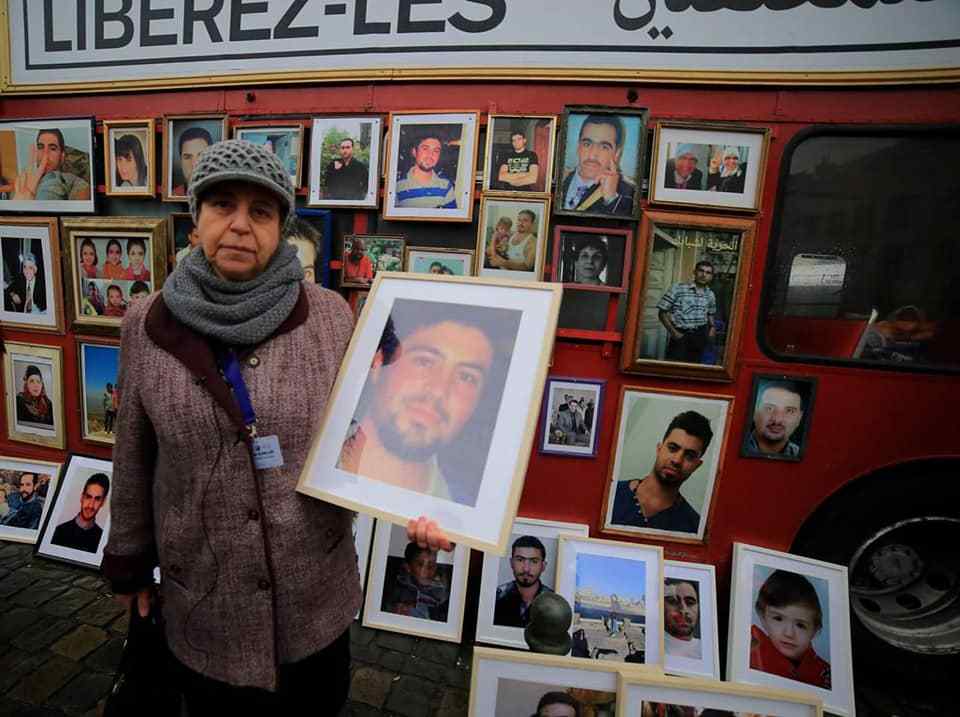
Mariam al-Halaq carrying a picture of her deceased son, the doctor who died under torture, Ayham Ghazzoul – 2019 (Mariam al-Hallaq Facebook account)
Syrian calls to re-empower the ICC
The International Guernica Group took a huge step toward achieving justice in Syria, through submitting a memorandum to the Public Prosecution at the International Criminal Court, urging it to consider looking into crimes committed against humanity in Syria.
Guernica’s statement, which was issued on March 4, 2018, and Enab Baladi got a copy of, stated that the ICC has to investigate one million Syrian civilians who have been subject to forced displacement from Syria to Jordan as a result of shelling and torture practiced by the parties to the conflict, including the Syrian regime.
The memorandum highlighted that a million Syrians in Daraa, south of Syria, have been subjected to “widespread systematic” attacks, including deliberate aerial bombing targeting civilians and residential neighborhoods, in addition to schools and hospitals. Internationally proscribed weapons have been used as well as arbitrary arrests and field executions, forcing millions of the governorate civilians to seek asylum in Jordan.
The memorandum held the Syrian regime the greatest responsibility for these violations, especially the head of the regime, Bashar al-Assad, and called on the ICC to hold accountable the parties to the conflict responsible for these acts, bring them to justice and end impunity.
The Guernica Centre for International JusticeThe Center defines itself as a non-profit legal group registered in the United States and Britain. The Center team consists of international criminal law lawyers, and is specialized in international litigation to guarantee accountability for international crimes and human rights violations. The Center has adopted legal strategies in cooperation with key actors in countries going through transitional, conflict or post-conflict phases. |
Rome Statute: Why Jordan?
With more than 5.6 million Syrian refugees being distributed over the neighboring countries, questions have been raised about the Guernica Centre lawsuit tackling Syrians displaced in Jordan, even though the same scenario have been re-enacted in various Syrian territories leading to their displacement to Lebanon and Turkey.
However, the human rights center singled out Jordan following Rome Statute that established the International Criminal Court in 1998, which considers Jordan as the only neighboring country to be party to the Statute. This allows the International Criminal Court to look into cases of crimes against humanity and war crimes.
Since Syria is not a party to the Rome Statute, the International Criminal Court does not have jurisdiction to look into crimes and abuses committed on Syrian land. Therefore, many individuals and parties to the conflict have escaped accountability, and some human rights centers called for investigating violations committed against Syrians in countries parties to the Rome Statute.
Guernica Centre, registered in the United States and Britain, referred to the displacement of the Rohingya from Myanmar to Bangladesh. Last September, the ICC announced that it had initiated a preliminary investigation into the deportation of the Rohingya Muslim minority to Bangladesh by the Government of Myanmar.
Bangladesh, neighboring Myanmar, is a state party to the Criminal Court. Therefore, the ICC was able to investigate “inhuman crimes” committed against Rohingya.
The International Criminal Court
It is the first independent judicial body established in 2002 under the Rome Statute of 1998. It is also the first tribunal capable of prosecuting individuals accused of war crimes, crimes against humanity and genocide around the world.
The number of countries signatories to pass the law of establishing the Court amounted to 121 countries until 2012. The ICC faces sharp criticism from major world countries, including the United States, Russia, China and India, which refused to sign the Rome Statute or withdrew from it later.
Mere pressure or a real impact?
Human rights efforts to bring the Syrian file to the ICC come from the point of view of the Guernica Centre, considering that the human rights situation in Syria has witnessed a significant decline, despite the attempts of some European countries to prosecute Syrian individuals on its territory, who have committed violations while at home.
However, Guernica Centre considered these trials to be “insufficient” to achieve justice in Syria and end impunity, calling the court to use its powers or establish an international tribunal for Syria.
What is the actual impact that the Centre’s memorandum can bring to the ICC?
Mohammad al-Abdallah, head of Syria Justice & Accountability Centre, stated that the facts and figures issued by the International Criminal Court were “not encouraging” enough. He told Enab Baladi that the ICC limits its trials and accountability processes to a small group of war criminals, usually that group of senior leaders and major personalities who are responsible for most of the crimes.
Al-Abdallah added that even if the lawsuit is accepted, it is not possible to detain or prosecute all those involved in committing “war crimes” in Syria. He indicated that it is also difficult to bring the main figures responsible for the crimes in Syria to the ICC for questioning, investigation and scrutiny, stating the example of the international warrant of arrest issued since 2005 against the Sudanese President Omar al-Bashir, which is still pending with no apparent prospect for a near trial
He insisted that the possibility of rejecting the memorandum issued by the Guernica Centre may be justified by the fact that the displacement of civilians from the Syrian province of Daraa to Jordan did not include the entire population, as in the case of the Rohingya, who were systematically expelled from Myanmar for being a religious minority.
Al-Abdallah added that “the opinion of the ICC may be that the people of Daraa were not subjected to forced displacement, because the process was neither undergone on a collective scale, nor based on religious, ethnic or political minorities’ issues.”
He deduced that the lawsuit can exert a political and media pressure to besiege the Syrian regime; however, it may not result in a change in the political balance in Syria or in a progress regarding the judicial progress of the Syrian file.
Individual European prosecutions launched by human rights activists and victims’ families
In recent months, European courts have been holding hearings regarding lawsuits filed by individuals, detainees and former victims of crimes against humanity committed by various parties to the Syrian conflict, using individual jurisdictions to hold individuals accountable. This came as a result of the efforts consecrated by human rights activists to gather evidences, document the violations and place them in the hands of the European judiciary.
In Sweden, nine Syrian torture survivors filed a criminal complaint on February 19 against senior officials of the regime, accusing them of crimes against humanity, with the support of Syrian and international organizations.
The complaint filed to the Swedish judiciary aimed at investigating 25 intelligence officials, including Jamil Hassan and others, as well as those whose names have not yet been identified, after issuing international arrest warrants against them.
The allegations, which are based on the Swedish Penal Code, include the crimes against humanity and war crimes committed together with torture, degrading treatment, rape, serious physical injury and unlawful abduction.
In November, the French judiciary issued an international arrest warrant against three senior officers in the Syrian regime: Ali Mamlouk, head of Syria’s National Security Bureau, Jamil Hassan, director of the Syrian Air Force Intelligence Directorate and Abdel Salam Mahmoud, head of Investigation Branch of Air Intelligence.
In May 2018, the German Public Prosecution issued the first international arrest warrant against an official in the Syrian regime, namely Major General Jamil Hassan, head of the Air Force Intelligence Directorate, following a criminal law suit filed against him by former detainees.
These cases were supported by Syrian human rights activists as well as the families of the victims who were killed in the Syrian regime’s prisons.
Al-Halaq told Enab Baladi that she has perceived a positive response and an international reaction to the demands of the victims’ families, who have received promises to make the Syrian human rights file a priority in all meetings on Syria.
She noted that European laws were not helpful. However, the Caesar Families Association (CFA) was assured by France that some amendments will be introduced to articles in the French law which will allow the victims’ families to prosecute Syrian officials.
Syrian regime dissidents pursued in Europe
The arrest of Syrian officers in Germany, who were working for Syrian security services, has raised hopes among Syrian victims to end the impunity that has persisted over the past seven years in Syria. However, these arrests have raised concerns among some former members of the Syrian regime, who broke away later and chose Europe as a refuge for them.
The German authorities carried out a security operation on February 13, in the cities of Berlin and Zweibrücken, during which two Syrian intelligence agents, Anwar R., 56, and Iyad A., 42, were arrested.
The defendants were accused of committing crimes against humanity when they worked for the Syrian regime in 2011 and 2012. Both officers broke from the regime, went to Germany in 2012, and obtained asylum.
Hussein Ghurair, a former prisoner in the Syrian regime’s prisons and one of those who testified against the arrested officers before the German judiciary, told Enab Baladi that he and six others had identified the defendants in Germany by coincidence. They, then, resorted to the European Center for Constitutional and Human Rights (ECCHR) to sue them.
According to Ghurair, the detainees were involved in the torture and killing of prisoners in section 251, known as al-Khatib branch, during the 2011 popular protests in Syria. Anwar R., a colonel, was in charge of the investigation unit, while Iyad A. was heading a security team specialized in arresting the demonstrators and handing them over to Syrian intelligence centers in Damascus.
He added that the German Public Prosecutor found sufficient evidences to arrest both officers for committing crimes against humanity and their involvement in torturing hundreds of detainees and killing at least two, according to available evidence.
The arrest of the aforementioned officers in Germany raised fears among dissidents of the Syrian regime that they would be held accountable for acts they committed against their will when they used to work for the regime.
Lawyer Ibrahim al-Qassim, from the ECCHR, who is the legal representative of the prosecution in the case against the detainees, indicated in an interview with Enab Baladi that splitting from the Syrian regime does not mean that former officials are immune from prosecution when the judiciary proves that they committed crimes while on duty.
He stressed that every defendant is considered innocent unless proven guilty by a court order, highlighting that war crimes and crimes against humanity are imprescriptible. He also asserted that the split from the regime itself does not mean that there is no crime or rights attributed to the victim.
What are the powers of the European judiciary?
Prosecuting those accused of committing war crimes in Syria, by some European countries, has raised questions about the competence of the judiciary in those countries to hold non-Europeans, who committed crimes outside European territory and whose victims are also not Europeans, accountable.
Al-Qassim explained that some European countries have in their laws a principle called universal jurisdiction, which empowers those states to investigate crimes committed outside their territory even if the offender or victim is a national of another country.
He continued: “These countries should fulfill their duties in holding those involved in crimes against humanity and war crimes in Syria accountable, and to prevent the impunity in this regard, as no other international judicial body is eligible to pursue them.”
International positions on the referral of Syrian file to the International Criminal Court
Since 2011, many countries, international organizations, and political and human rights personalities have expressed their support for referring the Syrian file to the ICC.
On January 16, 2013, Switzerland submitted to the UN Security Council a letter calling on 58 countries to refer the Syrian file to the ICC to investigate the possibility that war crimes and crimes against humanity have been committed in Syria, in support of the French proposal.
In a statement they issued, the 193 member states of the United Nations appealed to the United Nations to support this effort by supporting the French project that allows the International Criminal Court to investigate allegations of “heinous” crimes committed by various parties to the Syrian conflict, including the regime and its militias on the one hand, and armed opposition groups on the other.
In March of the same year, 64 countries expressed their support for referring the Syrian file to the International Criminal Court (ICC) in an international statement issued during the United Nations Human Rights Council dialogue with the UN Fact-Finding Mission in Syria.
In May 2014, more than 100 human rights organizations from around the world called the UN Security Council to refer the Syrian issue to the ICC prosecutor’s office. The statement noted that the work of the court would be a crucial first step, and one part of the required wider effort for accountability in Syria.
The EU Foreign Affairs Council (FAC) also called on the UN Security Council in its conclusions paper to address the Syrian situation, including the issue of referring the file to the ICC.
In the same context, the two former UN Human Rights Commissioners, Navi Pillay and Prince Zeid Raad Al Hussein, have recommended to the Security Council on several occasions to refer the Syrian case to the International Criminal Court.
In March 2018, bin Raad stressed the importance of supporting the “neutral and independent international mechanism” concerned with the collection, analysis and preservation of information about serious crimes in order to provide files for prosecutions. He also stressed the need to refer the Syrian file to the International Criminal Court, describing attempts to thwart justice and protect criminals as “shameful.”
What about the Security Council?
In the Security Council, countries are nearly split. The United Kingdom, France, Australia, Luxembourg, Argentina and South Korea have publicly expressed their support for referring the issue to the International Criminal Court.
However, other important countries have been a stumbling block in front of any move or suggestion in the Council for referring the issue to the ICC. This was evident in the veto adopted by Russia and China, the permanent members of the Council, several times to stand against any step towards accountability. Any permanent member of the Security Council can object to any proposal, without the possibility of revoking such an objection.
Veto makes attempts to refer the Syrian file to the International Criminal Court in vain
Russia has been using the right of veto for the Syrian regime since October 2011 against a draft resolution calling for an end to violence in Syria.
It has continued to use the veto for the benefit of Syrian regime, reaching 12 times so far, including 4 against draft resolutions related to the investigation of the identity of chemical weapons users in Syria. This has hindered all international attempts aimed at restraining the Syrian regime power and holding it accountable for the crimes it committed, under Article VII of the Security Council.
This raises the question of the Council’s usefulness amid its continued failure to achieve its stated objectives of international peace and security.
Under the constraints from which the Security Council suffers, movements to advocate important issues have failed on several occasions, despite strong evidence of crimes.
Since it was founded, the Security Council referred only two files to the ICC: the Darfur file in Sudan in 2005 and the Libyan file in 2011.
The stations where Russia and China stopped UN resolutions condemning the Syrian regime
The mechanism of referring the Syrian file to the International Criminal Court
In the absence of chances of a military solution in Syria and the stagnation of the political process which has been stalled for years, the legal process remains a glimmer of hope to hold accountable all the parties that committed violations and atrocities on Syrian territory.
The International Criminal Court (ICC) is the world’s most important judicial body capable of holding “war criminals” accountable. The international accountability framework also includes the establishment of an international court for Syria or mixed courts.
What are the ways through which the Syrian file can be referred to the International Criminal Court? What are the chances of establishing a special court for Syria, like the courts of Yugoslavia, Rwanda and Sierra Leone?
Director of the Syrian Legal Development Program (SLDP), Ibrahim Olabi, explained that the International Criminal Court does not have jurisdiction in Syria because it did not ratify the Rome Statute that established the court, and because the Security Council failed due to the Russian veto to refer the Syrian file to the Criminal Court.
Olabi added that “the establishment of a special court for Syria also requires either a referral from the Security Council or the approval of the host country (Syria).”
He pointed out that because of the veto of Russia and China in the Security Council, the establishment of a special court or referring the file to the International Criminal Court is almost impossible at the moment.
The world has lost its will for the establishment of special courts
The formation of a special international court in Syria is very complicated, according to the academic researcher Dr. Bashir Zain El Abidine, who published a study on “Efforts to Hold the Syrian Regime Accountable and the Available Mechanisms” on the site of “Pro Justice” organization.
According to him, this is difficult because of the very high financial cost of establishing such a court in exchange for the very limited number of parties that can be tried and because its establishment requires an international will, while the world lost willingness for the establishment of such courts, which proved their integrity but failed to prove their effectiveness, as he put it.
He pointed out that some countries tried to put forward the idea of establishing a special international tribunal along the lines of Hariri Tribunal, but such action requires a decision by the Security Council, which will inevitably face the Russian and Chinese veto.
How evidences of committed crimes are documented and collected?
The United Nations forms inquiry commissions and fact-finding missions to confront cases of serious violations of international humanitarian law and international human rights law to enhance accountability against such violations and to combat impunity.
The Independent International Commission of Inquiry
At its seventeenth exceptional session in August 2011, the UN Human Rights Council formed the Independent International Commission of Inquiry on the Syrian Arab Republic and entrusted it with the mandate to investigate all alleged violations of international human rights law since March 2011 in order to ensure the accountability of perpetrators of such violations, including those that may be crimes against humanity.
The Commission of Inquiry has found credible evidences and documents of major crimes in Syria amounting to the level of “crimes against humanity” and issued 17 reports about the matter.
The mandate of the Commission was extended for another year last March.
The International Impartial and Independent Mechanism
The International Impartial and Independent Mechanism (IIIM) on crimes in Syria was established under a decision of the United Nations General Assembly in December 2016 to assist in the investigation and prosecution of those responsible for the most serious crimes, bypassing with this the impasse of the Security Council, which makes it a unique accountability mechanism.
The Mechanism is headed by Catherine Marchi-Uhel, a former French judge with extensive international expertise in the prosecution and adjudication of war crimes.
The Mechanism collects and saves evidence of violations in Syria, in the hope that they will be used in an appropriate court.
The Mechanism has a team of investigators, lawyers, information and evidence management staff and analysts.
Syrian organizations’ cooperation with the Mechanism
In February 2017, several Syrian NGOs sent a letter to the UN General Assembly containing recommendations that would help the Mechanism to understand the Syrian people’s priorities and to enhance the Mechanism’s importance and its general acceptance by the Syrians.
In May 2017, the Mechanism’s founding team met with a wide range of Syrian civil society organizations in Lausanne, Switzerland. The meeting provided a platform for recommendations and exchange of views between the two sides. The team also met with the Head of the Mechanism, Judge Marchi-Uhel, in October of the same year.
A cooperation protocol was signed in Lausanne on April 3, 2018 between the Mechanism and 28 Syrian NGOs, setting out a number of comprehensive guidelines for cooperation between the Mechanism and the signatory NGOs.
The Mechanism has more than 900,000 records for investigation
CEO of Syrians for Truth and Justice organization, Bassam al-Ahmad, explained that the Mechanism has managed to collect more than 900,000 records from the UN Independent International Commission of Inquiry, countries, various NGOs and individuals for the investigation in the Syria matter, according to an update of the Mechanism, which reached the Syrian organizations in December.
Al-Ahmad added that the Mechanism relies on several forms of evidences, including photos, video clips, communications records and testimonies of witnesses, such as victims of crimes and witnesses who have an extensive view on the events, experts and those who have knowledge about the structures of the authorities and how they relate to the commission of crimes.
Al-Ahmad pointed out that the national authorities in the countries share with the Mechanism information concerning their investigations or trials. The Mechanism may also share the data received from NGOs with the judicial authorities or the specialized courts. Nevertheless, this must be carried out under certain conditions. The materials must be shared with the consent of the concerned NGO, and can only be shared with judicial authorities that respect human rights standards and apply fair trials. The Mechanism must also respect the restrictions imposed by the providers of the materials on how and with whom they can be shared.
The Mechanism will not share the information it has with state authorities of any country, as its mandate is limited to supporting courts and tribunals.
Al-Ahmad also pointed out that the Mechanism is currently dealing with 10 requests from national prosecuting authorities willing to obtain information and evidences regarding its ongoing investigations and prosecutions, according to the latest update received from the Mechanism. The Mechanism will provide feedback to NGOs on the use of their data to support national prosecutions.
Possible scenarios for the implementation of justice in Syria
Transitional justice is a term that refers to a set of judicial and non-judicial measures that the state implements after its emergence from a period of war or conflict in order to address the human rights violations it has witnessed.
Such measures include prosecutions, truth commissions, programs of reparation and reform of state institutions and support of reconciliation processes.
“Director of I am SHE Network and human rights activist Noor Burhan talked to Enab Baladi about the possible scenarios for the implementation of post-conflict transitional justice.
Burhan pointed out that if the current regime remains, there will be no transitional justice in Syria, with the exception of certain compensation measures for certain categories. The accountability procedures imposed on some figures outside Syria will remain subject to sanctions and travel ban. She nevertheless believes that these measures will be lifted with time in the event of stability of the situation in Syria and the return of relations with countries.
In the case of a partial political transition in the country, there are several possibilities. However, according to Burhan, it is likely that the accountability procedures will be compromised between the leading parties, and they will be limited to the marginalization of some leaders or the demobilization from the security forces and the army.
The quotas allocated to compensation and reparation measures, especially those related to reconstruction, will be divided.
Burhan added that achievable measures are legal and constitutional amendments with respect to rights, or the prevention of direct violations in the future, in addition to the rights of refugees and displaced persons to return, and the solving of problems of real estate and civil records.
In the event of an actual political transition, there will be broader and better measures than those in previous scenarios, especially with regard to legal and constitutional amendments, reconstruction programs, the return of refugees and displaced persons, and the real estate and civil records.
However, she added that this stage will face many obstacles that will limit the effectiveness of transitional justice. This is because there is a huge number of violations and destruction. In addition, it would be impossible to hold all violators accountable except for certain prominent figures, and to carry out commemoration procedures due to the community splits, which might cause new conflicts. Moreover, compensation procedures cannot be just and complete because of the deteriorating economic situation, large destruction and high costs.
Opinion poll:
if you think the article contain wrong information or you have additional details Send Correction
النسخة العربية من المقال
-
Follow us :












 The Freedom Bus in Brussels - 2019 (Families for Freedom Facebook page)
The Freedom Bus in Brussels - 2019 (Families for Freedom Facebook page)





 A
A
A
A
A
A
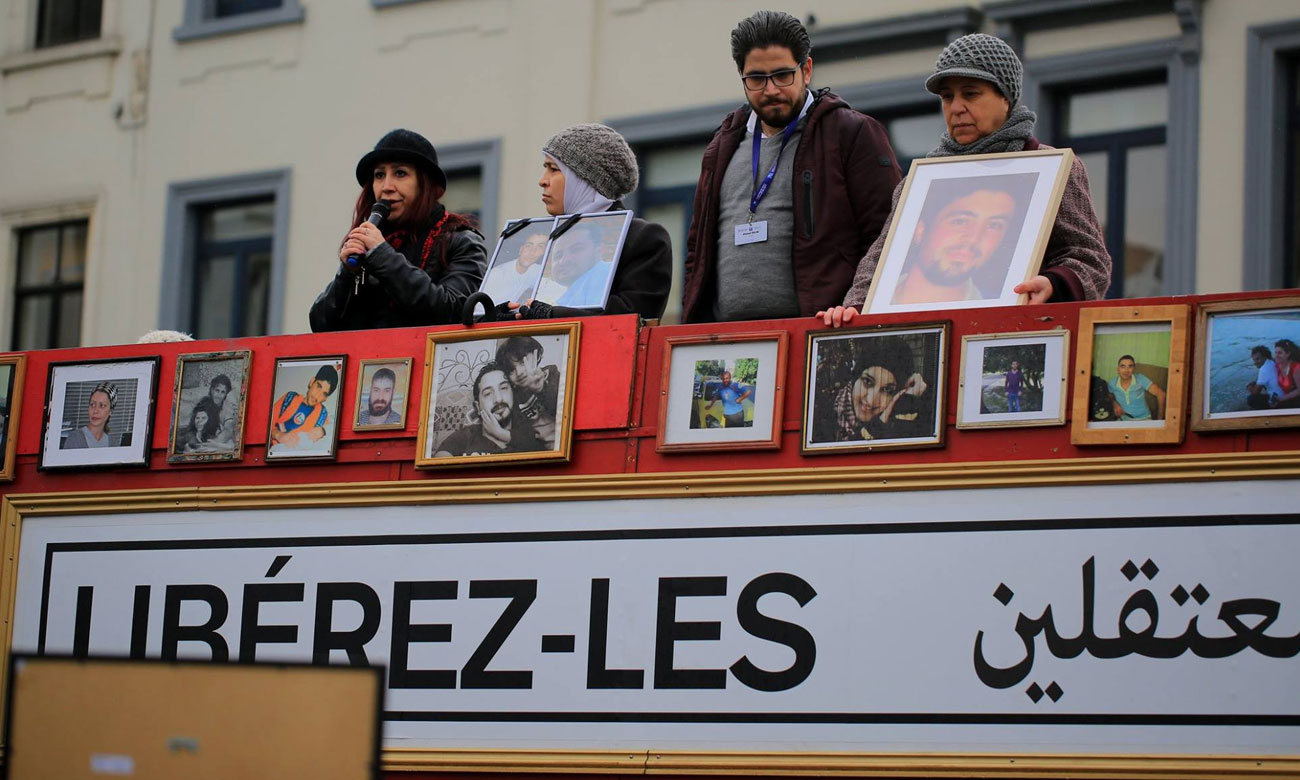

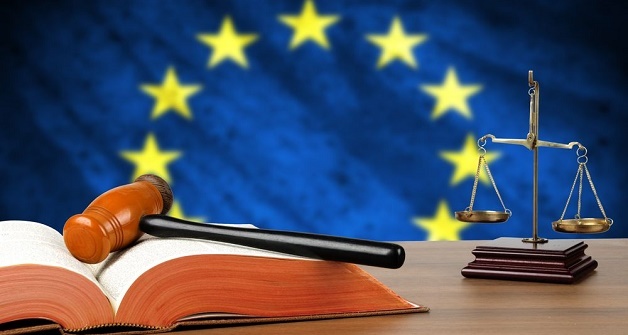

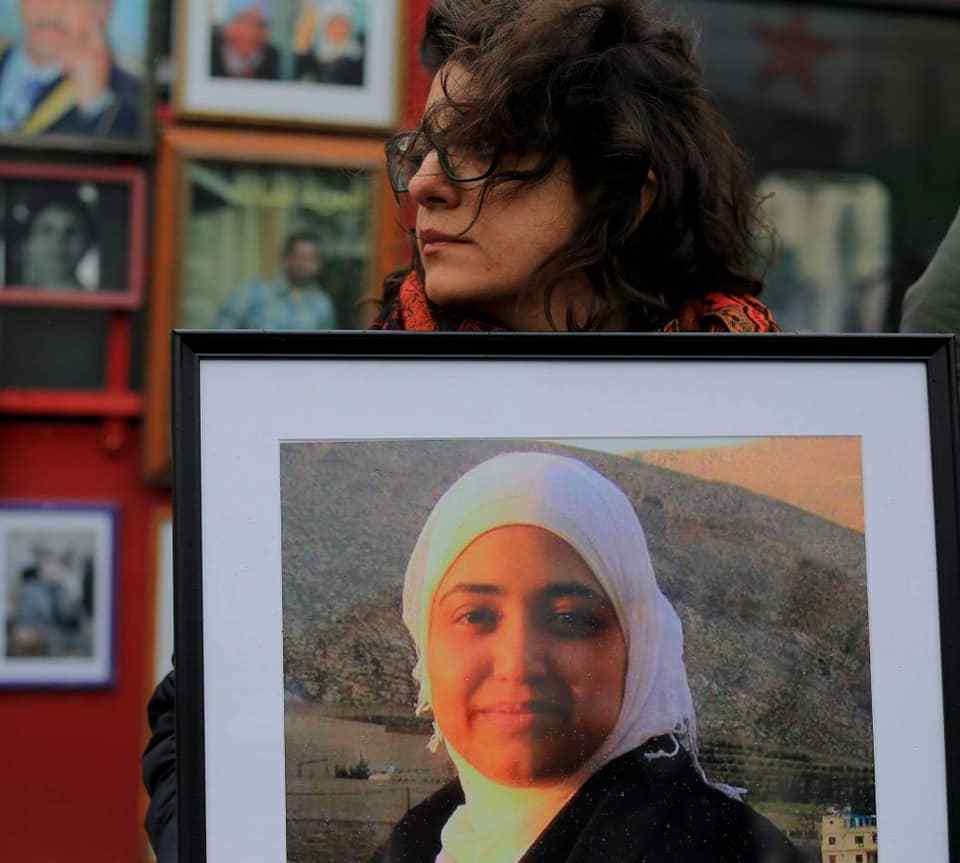
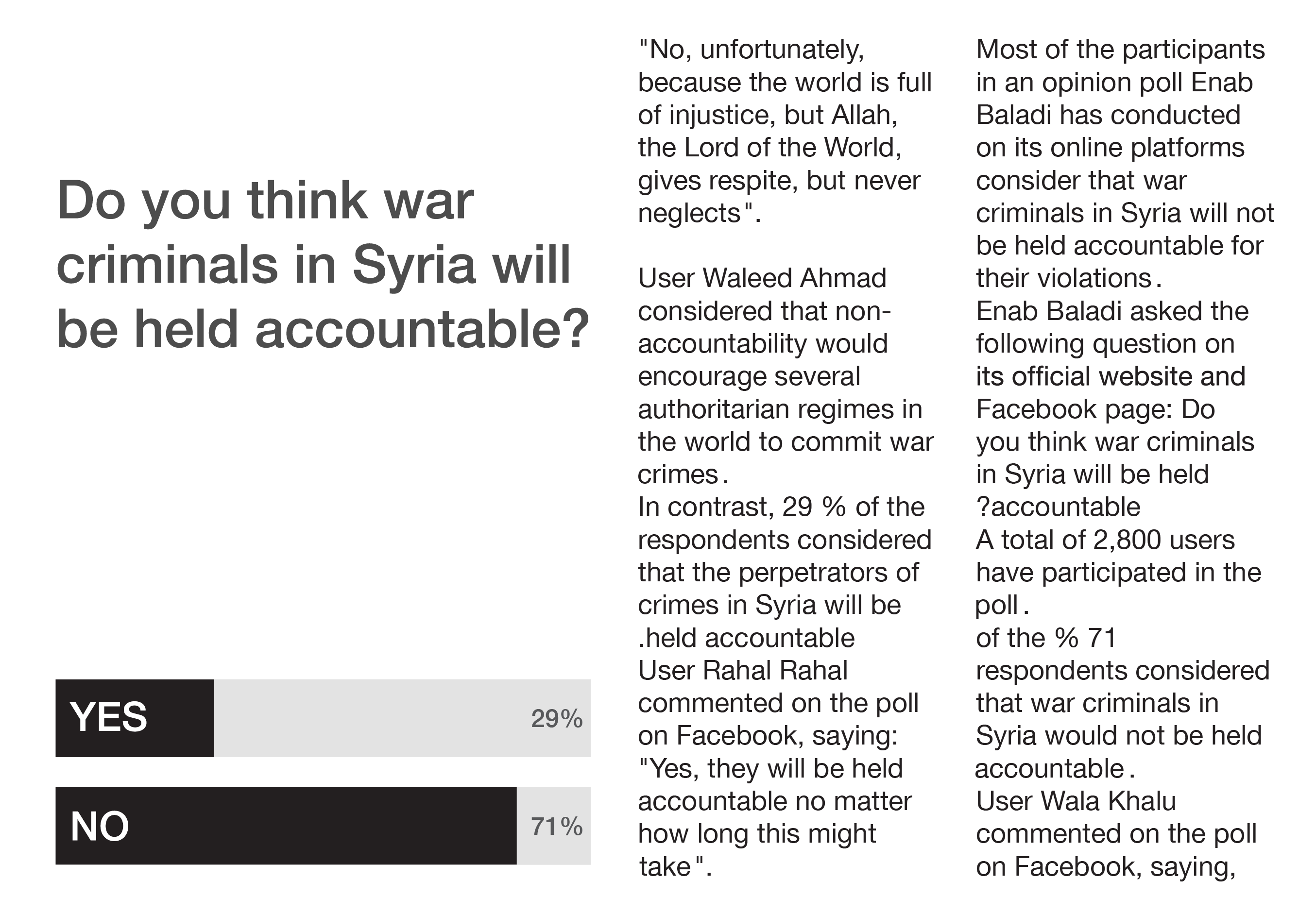


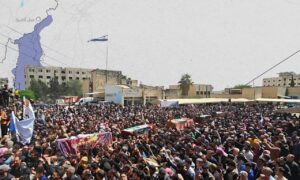




 More In-Depth
More In-Depth